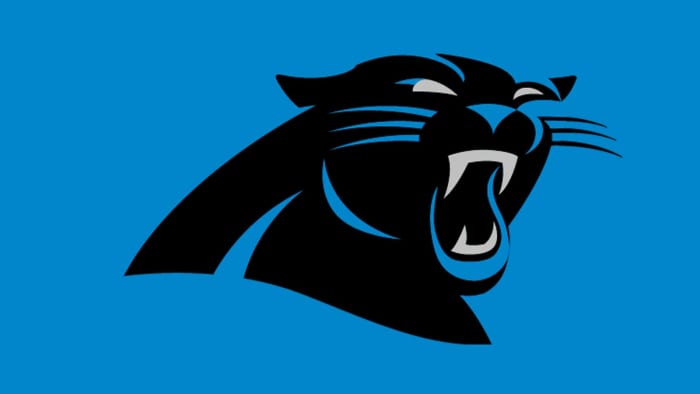Kerry Collins was the first draft pick in the history of the Carolina Panthers, and in his second NFL season in 1996 he helped lead the team to its first divisional title and the NFC championship game.
Unfortunately, less than two years later, Collins' tenure with the team ended much earlier than either the quarterback or management would have liked. Collins went on to eventually pick himself up, make some important changes in his life and then play for a total of 17 NFL seasons before retiring in 2011. We caught up with him recently and had an interesting conversation about his passion for writing country music, a playing career that he is proud of, and what he learned from his up-and-down days with the Panthers.
Are you enjoying retirement?
"Retirement has been great. I was one of the fortunate ones. I got to play as long as I wanted to play. I was ready to move on by the time I retired. Since then, we decided to stay here in Nashville (Tennessee, where he played five seasons). So we decided to stay here, and we still have the farm back in Montgomery County (North Carolina). My wife (Brooke) is from Concord, so we go back and forth quite a bit. But Tennessee is kind of home base for us."
Your ranch is where exactly in North Carolina?
"We have a little farm in Tennessee, but our ranch is in Montgomery County in North Carolina, near Troy. I've had that since 2002. Originally we had decided to live there after I was done playing, or somewhere back in North Carolina. But we got to Nashville and my daughter (Riley) got in school, so we decided to stay in Tennessee. But we still love the ranch back in North Carolina, so we go back and forth."
Is it true you really got into writing country-music songs after your playing days ended?
"I chased it pretty hard for about four years. I'm a songwriter, OK? I kind of chased the dream of Nashville songwriter as much as I could while I was still playing football. But then my focus kind of shifted. I'm really doing it more now just for the joy of it and the craft, and for the creative outlet that it brings. So I'm not as heavy into it as I once was, but I still do it."
Do you like to play and sing your own songs, or do you let others do that?
"You know, I'm not a very good singer (laughing). People say to me, 'Oh, you're trying to sing.' And I explain to them, 'No, no, I'm not trying to sing. I don't sing very well.' But I do play (guitar) well enough to put a few chords together. I'm more into the lyrics; that's more of my strong suit. But I play well enough to put a song together."
In Nashville, you obviously can find plenty of people to play your songs?
"A lot of the songs I wrote were co-written, so I would write with one or two other people. I don't know the exact count, but I've gotten at least a dozen cuts with artists. But they were small artists that no one would ever hear of on a national level. Small victories. I was never able to crack into the national radio end of it. We had one in Texas that was top 10 there."
How do you assess your 17-year NFL playing career, which included more than 40,000 yards passing – putting you just ahead of guys named Joe Montana and Johnny Unitas on the all-time list?
"I think it speaks to my longevity more than anything. My durability was probably my best suit. I was able to stay healthy most of my career. I had some good years and was on some good teams – and before I knew it, I looked up and I was closing in on that 40,000-yard mark. It was a nice accomplishment, and I'm certainly proud of a lot of the things I accomplished in my career."
Do you look at what happened early in your career with the Panthers as an important part of your journey?
"Looking back on it now, 20 years later, gosh, I was so young and had so many things I had to figure out. I had to figure out how to be a pro and how to handle the situation I was in. I didn't have those things figured out when I was in Carolina, and unfortunately there are things I wish I had done differently.
"But, to your point, that was all part of the process for me. It was a big learning curve and unfortunately, my story evolved from going through those things to ultimately coming out on the other end a better pro, a better person, a healthier person.
"I think the most positive thing to come out of it was the way I turned my life around as a person, not necessarily as a football player. Of course it helped me as a football player in terms of the success I was able to have on the field, but more importantly it helped me to lead a better life. I was able to learn from those things and try and do better. I had a lot of help along the way and I'm very fortunate for that. Through the help of a lot of good people, I was able to figure things out and turn my life around."
Do you watch much football now, whether it be the Panthers or other teams you played for?
"Here in the last year or two, I've begun watching more. I've gotten back to being a little bit more of a fan of the game, more so than right after I retired. I tend to watch either the Titans or like one of my buddies that's into coaching now. Jason Garrett in Dallas, he was my backup in New York (with the Giants), so I kind of keep an eye on the Cowboys.
"Certainly with the success the Panthers have had, it's been hard not to notice. With Cam (Newton), the things that he's done, too, I can certainly appreciate that and the success the team has had over the last few years."
His rushing numbers are a little better than you and the other Carolina quarterbacks who came before him …
"His are definitely better than mine, I can guarantee you that."















